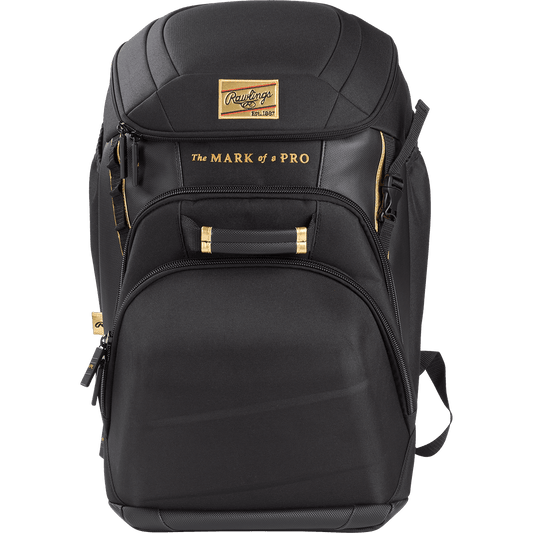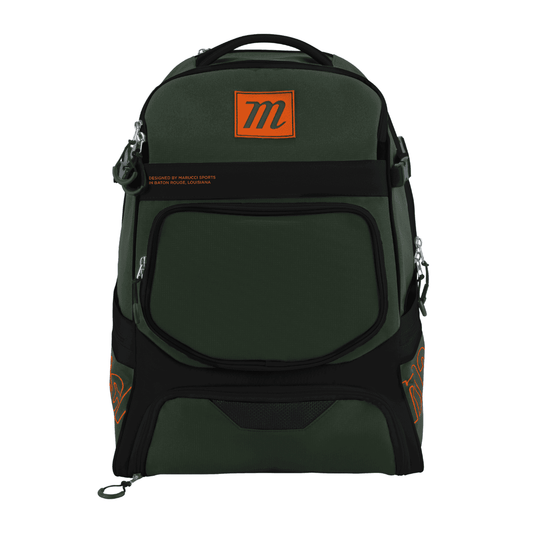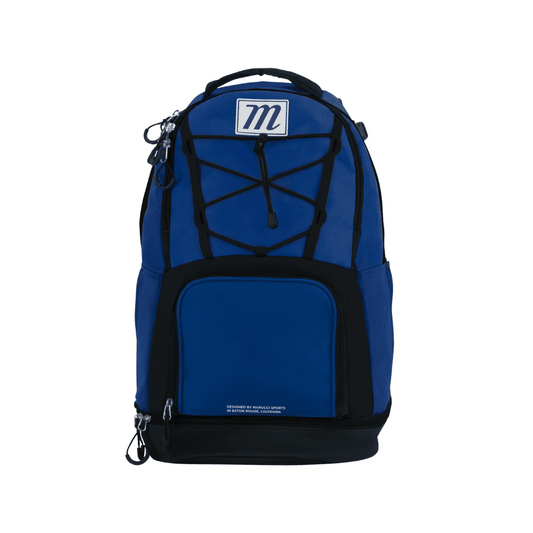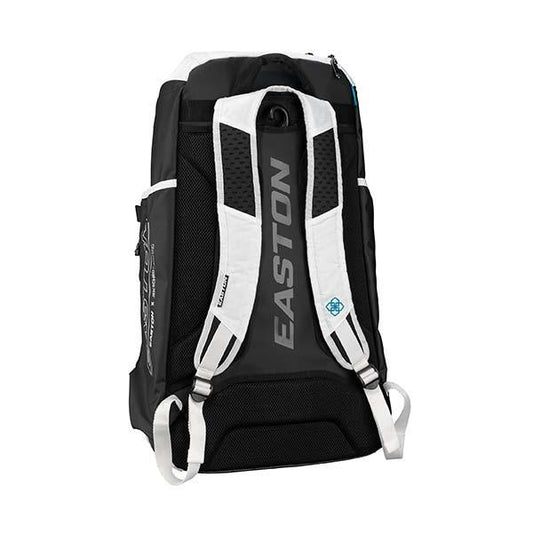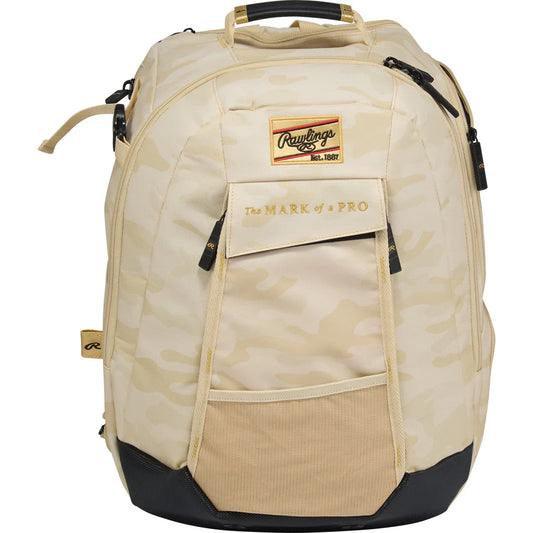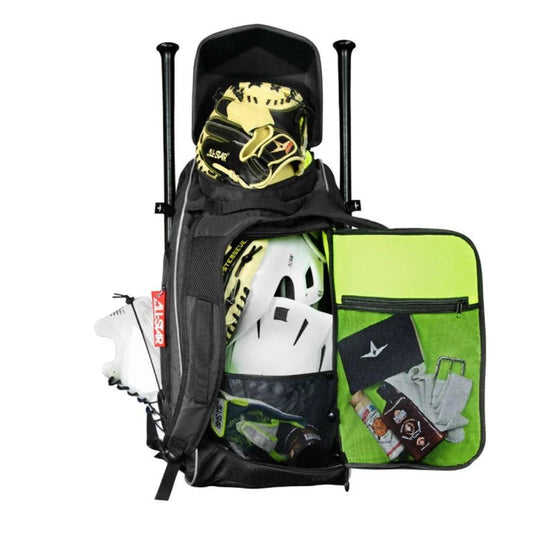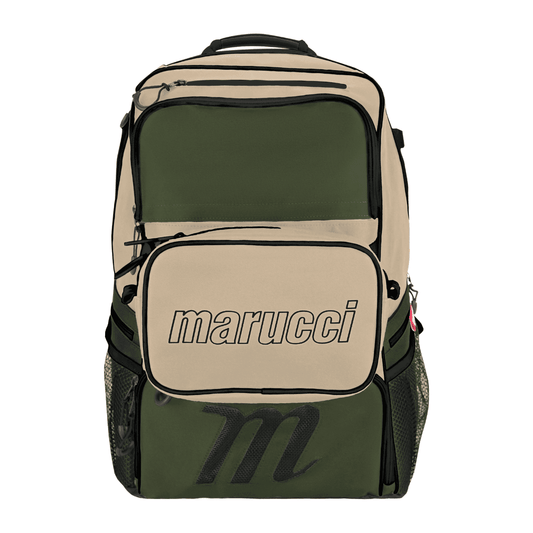Whether you play slowpitch or fastpitch softball, there’s a good chance you play with an aluminum alloy or composite bat.
Many players opt for composite bats because they deliver crazy high bat performance factors, pop, and huge sweet spots that really allow players to crush those picture-perfect pitches.
However, you may have heard that composite bats need to be broken in and that they “have a fixed lifespan.” There is some truth to this.
The fibers in composite bats will stretch and break with use, and, without proper care, composite bats can crack, snap, or “die” much earlier than they would if they were afforded the proper maintenance.
Take these softball bat care tips to heart - especially for those of you that swing a composite softball bat. These bats are expensive, so protect your investment!
Do not play in cold weather (above 60F only!)
The temperature in which you use your composite bat matters! In cold weather, the fiber matrix in composite bats does two things. Namely, it contracts and gets more brittle.
When the mercury drops, that means your bat gets brittle. Practicing with a composite bat in the cold is not all right. Making contact with a ball drastically increases your chances of snapping or cracking the bat.
Moreover, even if you don’t see the damage, practicing in the cold can result in little fractures in the fiber matrix increasing the chances of early fatigue or cracking. The moral: practice and play only in temperatures above 60F.
Do not store your bat in excessively hot or cold conditions
Similarly, you should never store your composite slowpitch or fastpitch bat in excessively hot or cold conditions. While it’s worse to play with a bat in the cold than it is to store one in it, extreme temperatures can still stress the fibers, resulting in premature damage.
Keep your bat with your other gear, somewhere protected against the elements, and inside if possible. Don’t just throw it in the garage.
Don’t let anyone else use your bat - sorry not sorry
Softball bats have a lifespan, right? That means every time you make contact with a ball, you’re taking a swing or two off its eventual fate.
If you let your teammates practice or play with your bat, you’re magnifying those conditions. Bottom line: the more people play or practice with your bat, the shorter the lifespan will be.
The solution? Don’t feel guilty about keeping the bat to yourself. In this situation, sharing is not caring (for your bat).
Don’t hit your bat on your cleats
You’ve seen it, maybe you’ve even done it. There’s dirt on your cleats, and you bang your bat against your cleats to clear out some of the mud.
Seems fine, except there are two problems. One, you’re going to get dirt all over the barrel of your softball bat, which is ugly, abrasive, and can damage the finish. Two, hitting your bat against your cleats can damage it.
In hotter, wetter weather especially, mud tends to clog up cleats - but don’t make that an excuse. Knock your clears off against something else and only know your bat against a pitched regulation softball, period.

Rotate your bat a quarter of a turn every time it makes contact with a ball
Here’s a real insider tip that will keep your bat fresh for longer, especially for heavy hitters. Power hitters take note: rotate your bat a quarter of a turn in your grip every time you make contact.
Every time your bat hits a ball, it gets a little stressed. Rotating it every time will help ensure that in the long run, it’s not one side of the barrel that’s taking all of the abuse. Doing so will help you average the wear on the barrel and extend the life of your bat.
Say no to rubber batting cage balls - practice only with regulation leather-covered softballs!
You know those dimpled rubber balls that batting cages often use? The ones that are usually bright yellow or white? Don’t hit those. Like, ever.
They’re a lot heavier and denser than regular softballs. They’re also pretty soft, so you might think that they’re alright for practice every once in a while.
Big mistake. Yes, they can be softer than some softballs, but since they’re heavier the net force on ball contact is way higher, and that’s the thing that does the damage.
Do not practice or play with them. Just use a regular, regulation leather softball. How hard can that be?
Also - do not hit wet softballs
On the note of never playing or practicing with rubber batting cage softballs, you should also make it a point not to play with wet softballs.
Wait, but doesn’t the leather skin absorb water, making it softer? Yes, it does. But it also makes it heavier, and if you need a primer on why more weight is not good, read the last section again.
A wet softball will generate more force when batted off your softball bat’s barrel, stressing the composite fibers. Don’t do it, and if a ball gets wet during practice, swap it out for a dry spare.
Don’t swing at a ball if there’s dirt on the bat barrel
If you didn’t heed our rule above and there is for some reason or other dirt or mud on your softball bat’s barrel, make sure you clean it off before swinging at another ball or putting the bat away.
Mud and dirt might seem like, well, just mud and dirt, but they are abrasive. If you hit a ball with a dirty bat, you could scratch the finish or worse. Each grain of dirt or sand is like a tiny pressure point, magnifying the force of the pitch.
Keeping your bat’s barrel clean should solve that issue, though.
Avoid solvents and cleaners - clean with warm water and soap only
Finally, you need to keep your bat clean before putting it away for storage, most of all to protect the pretty finish that you paid so much for.
However, steer clear of solvents, chemical cleaners, and abrasives. They can do more harm to a composite bat barrel than good.
All you need is some warm water and maybe a little bit of soap. Rinse away what you can, rub gently with soap and water if necessary, and then dry before storing. That’s all there is to it.
Contact Us for More Tips
Have additional questions about softball bat care and maintenance that you need answered? Get in touch with us at 1-888-540-BATS and we’ll be happy to help.
Also, now’s a great time to invest in a new bat for the upcoming spring season, especially if you were less than kind to your bat last year. Our collection contains both fastpitch softball bats and slow pitch softball bats for sale (including youth softball bats) from top brands like Axe, DeMarini, Miken, Easton, Louisville Slugger, and more.
We offer low prices and free shipping - so get ready to save!















